Canada Taxes Up Fraser Institute

- Image via Wikipedia
The Fraser Institute Canadian Consumer Tax Index indicates 41.7% of average family’s income is now going towards taxes.
In 1981, the figure was 40.8% and 1961 it was 33.5%, the latter was the first compiled figure by Fraser Institute.
Has anyone noticed an improvement in services that are offered in return?
Related articles by Zemanta
Affordable Housing in Toronto / GTA
As we all know the housing market has been hot for a number of years now. The average GTA houses are now around $440k; $477k in Toronto and 408k in surrounding areas. So where can you find reasonably priced housing that is ideal for first time buyers.
Currently the cheapest prices are in the the east end of the GTA with Oshawa being the most affordable market with average prices of $255k. Condo townhouse in Ajax are going for about $235k with condo fees of $150 per month.
Within Toronto you can get a good value entry-level home in Mimco. Another reasonably valued location is a little area between Don Valley Parkway and Scarborough, north of Danforth.
Etobicoke offers good buys in Condos with significantly more space than city core with downtown only 20 minutes away by subway from Kipling station.
Related articles by Zemanta
Toronto Employment Changes by Sector
According to Toronto City employment survey, Toronto’s overall employment in 2009 was 1,291,200 down by 1.4% or 18,100 jobs from 2008; the first year of decline after five consecutive years of growth. Here is some other interesting data based on the report:
In 2009, the total number of business establishments in the City of Toronto was 73,600. This is a decrease of 1,300 business establishments from the previous year. Of the new establishments, 53.7% are located within the Downtown, Centres and Employment Districts. The types of new occupancy that dominate in 2009 are Health Service practitioners such as chiropractors, physiotherapists, etc., law firms, computer services, specialty stores, bake shops and butcher shops.
The largest share of jobs is found in the Office sector (47.1%), followed by Institutional (16.8%), Service (11.7%), Retail (11.0%), Manufacturing (10.0%) and Other (3.4%), reflecting the diverse nature of the Toronto economy.
Employment in the Downtown and Centres has grown by 8.3% or 39,200 jobs since 2004; but declined by 7,200 jobs (-1.4%) between 2008 and 2009.The median number of employees per establishment was 4 in 2009.
The graph below shows the change in each sector. The biggest decline has been in Manufacturing followed by Retail and Office.
2010 Toronto Road Tolls – Congestion Tax
We have been hearing about an increase in parking taxes and now there is a lot of discussion around introducing road tolls.
Mississauga Mayor Hazel McCallion suggests the new revenue source is necessary to fund the expansion in public transit across GTA. This is a solution to partially address structural funding shortfall.
We have a lot to learn from other cities that have implemented such solution. For instance, congestion fees were introduced in Central London, U.K. On February 17, 2003 where motorists pay $13 a day to enter or travel within the city zone between 7 a.m. – 6 p.m.
The immediate effect on London traffic was a decrease of approx. 25% in normal traffic or 120,000 vehicles. A study done after 6 months showed the reduction was only 60,000 per day of which, 50-60% had switched over to public transfer, 20-30% avoided travelling into city, 15-25% switched over to car share, and the remainder switched to motorbikes and bicycles.
About 100,000 penalty fines were issued each month and 2,000 contested. There was an increase in the number of plate cloning, where non-payment fines were sent to the wrong person. Greenhouse gases fell; nitrogen oxide by 17% and carbon dioxide by 20% between 2003-06.
The Congestion charges has also been introduced in a number of other cities around the world including Singapore, Rome, Stockholm, Milan. In many cases the revenue was not as high as it was expected and close to half the revenue went towards operations. So before anything is introduced in Toronto we need to ensure the public transport network has sufficient spare capacity to cater for travelers deterred from using their cars. We also need to have a provisions to limit taxes in any legislation for new tolls road and Toronto drivers need to be treated equally. There is no good reason for Toronto residents alone to be paying $60 more for license fees each year.
Although congestion taxes are good in principal, it is unlikely the funds will be used efficiently by the city. It will likely increase our government size and salaries. I am afraid it will not be long before we start hearing more about emission based taxes based on vehicle engine sizes.
Related articles by Zemanta
Toronto News
- 15 November 2010, 3:53 pm: The Week Ahead
- 5 November 2010, 8:25 pm: Public donations distributed to 200 Wellesley St. E. tenants
- 27 October 2010, 8:13 pm: Toronto Fire Services welcomes newest firefighters
- 13 October 2010, 9:18 pm: A new era begins at Spadina Museum
- 13 October 2010, 9:16 pm: Chief Bruce K. Farr announces retirement from Toronto Emergency Medical Services (EMS)
- 13 October 2010, 9:15 pm: Small Business Forum presenters to model runways to success
- 13 October 2010, 3:26 pm: Media Advisory: Mayor David Miller to announce winner of the 2010 Toronto Book Awards
- 3 October 2010, 1:54 pm: As Toronto celebrates five years of Scotiabank Nuit Blanche, Scotiabank commits to long-term funding
- 27 September 2010, 6:54 pm: City of Toronto and Renault-Nissan Alliance to work together to advance zero-tailpipe-emissions mobility in Toronto
- 27 September 2010, 5:51 pm: Media Advisory: Media preview: Daniel Lanois premieres his Scotiabank Nuit Blanche installation
- 27 September 2010, 3:00 pm: City honours the late Toronto Fire Services District Fire Chief Robert Leek with park opening
- 26 September 2010, 5:51 pm: 200 Wellesley St. E. fire update
- 25 September 2010, 9:52 pm: City of Toronto responds to fire at 200 Wellesley Street East
- 24 September 2010, 8:03 pm: 311 Toronto celebrates its 1st anniversary
- 20 September 2010, 6:26 pm: Toronto's mayor unveils fifth anniversary retrospective exhibition to kick off 2010 Scotiabank Nuit Blanche
- 20 September 2010, 4:07 pm: Proxy appointment forms now available for Toronto's October 25 election
- 10 September 2010, 8:58 pm: The Week Ahead: City of Toronto meeting schedule, September 13 - 17
- 10 September 2010, 8:57 pm: City Hall architect Viljo Revell to be honoured on the centenary of his birth
- 7 September 2010, 7:15 pm: Voters’ list for Toronto's municipal election now available
- 7 September 2010, 3:04 pm: City of Toronto celebrates 100 years of Canadian Naval Services
- 3 September 2010, 1:46 pm: Media Advisory: City of Toronto celebrates re-opening of Jimmie Simpson Recreation Centre
- 2 September 2010, 6:01 pm: Media Advisory: City of Toronto to celebrate the Canadian Navy's 100th year
- 2 September 2010, 2:59 pm: City launches Canadian Navy-themed waterpark and playground at Sir Casimir Gzowski Park
- 24 August 2010, 7:26 pm: Media Advisory: City to host ceremonial event for the naming of Jean Augustine Park
- 24 August 2010, 7:25 pm: The Bridging Project transforms a Scarborough traffic bridge by connecting communities on both sides through art and performance
- 20 August 2010, 7:02 pm: Media Advisory: The Week Ahead - City of Toronto meeting schedule, August 23 - 27
- 19 August 2010, 5:01 pm: Media Advisory: New playground to open in Toronto's Strathburn Park
- 9 August 2010, 4:53 pm: Media Advisory/Photo Opportunity: Unveiling of refurbished tennis courts in Toronto neighbourhood
- 9 August 2010, 2:43 pm: Media Advisory: City to officially open new spay-neuter animal clinic
- 9 August 2010, 2:14 pm: Media Advisory: Toronto children to benefit from donation of cricket sets to City's day camps
2010 Charity Payments for Cause or Execs

- Image by Truthout.org via Flickr
According to recently released documents by the government a number of Sr. Execs in large charities in Canada are earning salaries above $300,000. The list include Plan International Canada Inc., Heart & Stroke Foundation of Ontario, York University Foundation, the British Columbia’s Children’s Hospital Foundation, Toronto General & Western Hospital Foundation. The Canadian Red Cross, paid officials between $200,000 and $250,000.
In an interview with The Globe and Mail, Don McCreesh, the chairman of charity umbrella organization has stated the large salaries are needed to have skilled people running charities and 250,000 salary cap is unworkable.
Charity is about giving and most people involved in a charity are there not to get rich but to make a difference in our community. They are driven by the passion to help others. I am confident there are many millionaires out there with business experience who are more than willing to run these charities for free because they believe in the cause.
You can access the salaries data by visiting T3010 Return link
Six-figure salaries the norm at top charities
Related articles by Zemanta
Gas Price Impact on Toronto Transportation
The data seem to indicate a very close correlation between price of gas and mode of travel. Could it be that record usage of transit may have little or nothing to do with who is running it but more to do with gas prices? and should TTC be proud of their record numbers when comparatively the percentage increase in cycling and walking is significantly larger?
Related articles by Zemanta
Toronto Transit Budget Gap

- Image by Allan Rostron via Flickr
The Toronto Transit Commission (TTC) operates 3rd busiest transit system in North America.
Annual Operating budget 1.4B
Employees 11,861
This would make the cost per ride about $5. If you compared this against New York Public Transportation (MTA):
Annual operating budget of 11.3B
Employees 69,756
where the cost per ride is $7, which indicates we are running a more efficient transit. It is also worthwhile to note, if you are a resident of Toronto, $257 of your property tax goes towards Transit. With over 1.8M households in Toronto, this translates to $462M per year. Assuming a fare of $2.5 for all rides this would mean about $700M is generated through fares. Given the transit system needs about 1.4B in operating costs we have a shortfall of at least $238M.
Miller is asking the province for $4B to cover this gap and more. In an interview with Toronto Star he has conjured up a disastrous future in terms of city traffic grid lock if the city does not receive the necessary funding. It leave one to wonder are we just waiting for the disaster to happen or it is time for us to discuss and evaluate other possible options like increasing fare for commuters who are not living in Toronto or introducing higher road tolls from them.
After all Toronto residents are paying their share through property taxes and $60 increase in Vehicle Registration. Perhaps the master plan is just to have Toronto residents use the bicycle path and pay the bill for others.
Related articles by Zemanta
2010 Toronto Municipal Election

- Image via Wikipedia
The next Municipal Election is on October 25, 2010 when Torontonians have to elect a new mayor and 44 city councillors. Here are list of candidates that are still running for the Mayor position:
Don Andrews
Andrews, 67, is a White supremacist who has been running for Mayor position a number of times. He got 0.17% of the votes in 2003.
Andrew Barton
27 years old science fiction writer.
Wendell Brereton
Former veteran of the Ontario Provincial Police for 12 years. He is entrepreneur and activist in the community for at least 18 years.
Douglas Campbell
In 1988, Campbell run as a candidate for mayor of North York and most recently he has run for Mayor of Toronto in 2000, 2003 and 2006 receiving only no more than 1.2% of the votes on these two occasions. He has some exterme views on businessmen and capitalism.
Mark Cidade
Cidade, 32, is a computer geek and an artist.
Keith Cole
Rob Ford
Ford, 4o, has been an Etobicoke North city conserative councillor for 10 years. He claims he is the third position with 13% support. He is also endorsed by Councilor Frances Nunziata. His campaign promises include repealing the vehicle registration tax, repealing the land transfer tax, making the TTC an essential service and working to cut the number of city councillors by half.
Baquie Ghazi
He ran for councillor from Ward 28 in 2006 and received only 3.3% of the vote.
Monoway Hossain
He run for Mayor position in 2003 and 2006. He received under 3,000 votes. He has worked as a lawyer and investment advisor. In his campaign he has promised to provide housing and food for Toronto’s unemployed and help re-integrate them in to the workforce. He has made some odd comments in the past about rescuing people from traps like psychologists.
John Letonja
His campaign centers around overhauling TTC and investing heavily in recycling programs.
Giorgio Mammoliti
He has been York West city councillor since 1995 and he has serveed on Miller’s Executive Committee. He is a former union leader and NDP MPP who has moved to righ-of-centre. His platform includes building a casino, introducing a municipal lottery, reversing tax increases that he has voted for in the past. In the past he has also voted for creating a red light district. He is proposing to cut Toronto’s budget and giving $40M to arts, cultural and communit groups.
Joseph Pampena
He is promising to raise revenue for the city by selling naming rights of pools and recreation centres.
Joe Pantalone
He is endorsed by 11 Toronto Councillors. Pantalone, 57, is Deputy Mayor under David Miller and has been city councilor for Trinity-Spadina for almost 30 years. He has extensive experience in municipal politics. If elected, he plans to protect our services and will partnership with private sector to rebuild transit service. He has mentioned he will not privatize services.
Rocco Rossi
Rossi, 47, is a Libral Party organizer and senior advisor to Michael Ignatieff. He is promising to freeze the mayor’s salary and privatize Toronto Hydro and other city assets if elected. He will also remove and prohibit bike lanes from major streets, freeze construction of rapid transit lines and replace TTC board with private sector experts.
George Smitherman
He is endorsed by Bob Rae. Smitherman, 45 is a former Liberal MPP for Toronto Center, former Deputy Premier of Ontario and Former chief of staff for Barbara Hall. He is considering introducing toll roads to raise city revenue and using Private sector partnership in public works projects. He has also proposed reducing or even eliminating $60 city motor registration fee.
Mark State
A retired engineer who run as mayor in 2006 and came last with 194 votes.
Tom Sullivan
Sarah Thomson
She is CEO and founder of the Women’s Post, a magazine for business women. She is promising competitive bidding from the private sector for city projects. She is also proposing construction of new subway lines instead of TTC’s planned rapid transit streetcar.
Ratan Wadhwa
Sonny Yeung
He run for council in 2003 in Scarborough-Rouge River Ward where he won 25.4%. He run again in 2006 and came 7th in the race.
Related articles by Zemanta
Toronto Hydro Time-of-Use Pricing
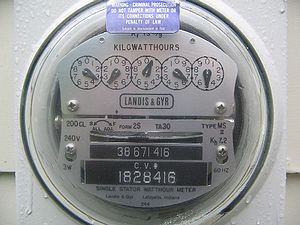
- Image via Wikipedia
Take advantage of Toronto Hydro Time-of-Use Pricing. You can save close to 50% in your electrical bill.
Weekdays During Summer Period
Peak pricing 11 a.m. and 5 p.m. (9.3 cents / kWh)
Mid Pricing 7-11 a.m. and 5-9 p.m. (8.0 cents / kWh)
Lowest Pricing 9 p.m. and 7 a.m. (4.4 cents / kWh)
Weekdays During Winter Period
Peak Pricing 7-11 a.m. and 5-9 p.m. (9.3 cents / kWh)
Mid pricing 11 a.m. and 5 p.m. (8.0 cents / kWh)
Lowest Pricing 9 p.m. and 7 a.m. (4.4 cents / kWh)
![Reblog this post [with Zemanta]](http://img.zemanta.com/reblog_e.png?x-id=6fa3adaf-0175-4563-80a2-534e19d367f3)


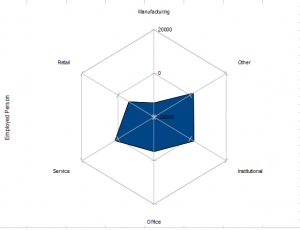
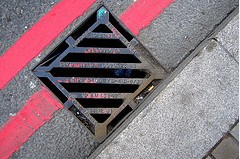
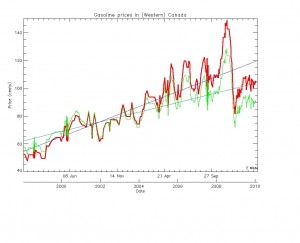
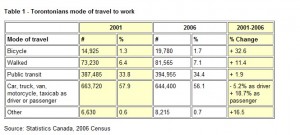
![Reblog this post [with Zemanta]](http://img.zemanta.com/reblog_e.png?x-id=2d8a3524-4d98-4683-93e6-6d63f4f8fcb5)









